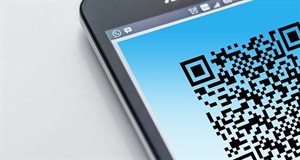Are QR codes still worth using?

Fast-forward to 2019, and QR codes don’t have the same hype they had eight years ago. The rapid speed at which technology has advanced, combined with the rise of social media has seemingly rendered QR codes redundant.
Or has it? QR codes could still have an important role to play in the business-to-consumer relationship. And it might just be that new technology is leading the charge in their resurgence.
What is a QR code?
QR codes are scannable barcodes that ask users to interact with some form of content, such as directing them to a website or getting them to take a specific course of action.
QR codes today
Instead of QR codes finding themselves consigned to the digital scrap heap, improvements in technology have reinvented them for the modern world. In fact, QR codes are now used by millions, thanks to the estimated 2.91 billion people who use a smartphone daily.
Today, websites are better equipped to deal with mobile use and smartphone cameras can scan codes directly without the need of an app. Almost 50% of people access the internet on their phones, and the importance of browsing the net on a mobile device has increased significantly.
But it’s not only marketing departments that are benefiting from the resurgence of QR codes. The pharmaceutical industry is finding ways to implement these codes to save time and increase security.
QR codes in the pharmaceutical industry
Another form of QR codes are security codes (SQR), which help to change how people have secure access to important items. SQR codes allow both private and public information to be stored within a code, which means part of an SQR code on a medical product can offer information for everyone to read or be restricted so that only qualified medical professionals have access.
They can be used for several tasks, including combating counterfeiting, confirming identities, detecting fraud, and keeping certain information confidential.
With QR codes likely to become mandatory on medical products, their importance is set to increase even further. Ultimately, QR codes will make accessing information about medicine easier and help to reduce the number of counterfeit products on the market.
So, in answer to the question of whether QR codes are still worth using? It looks like they’ve never been more important than they are now.
Devices such as Pyrotec PackMedia’s Fix-a-Form® booklet labels are a practical way to include QR codes onto product packaging without compromising the packaging’s aesthetics.
- Why choose premium labels for the nutraceutical industry? A look at Pyrotec PackMedia's expertise 15 Feb 2024
- The perfect coding and labelling solutions for personal care and cosmetic products 3 Nov 2023
- Revolutionising retail: Klip Strip and other display merchandising solutions from Pyrotec PackMedia 13 Oct 2023
- The end-of-line solution you've been waiting for 29 Mar 2023
- Uncluttered labelling for household cleaning products 28 Mar 2023
PyrotecPyrotec is a proudly South African company with its focus aimed firmly on the future. Its five brands - Pyrotec PackMark, Pyrotec PackMedia, Pyrotec PackLink, Pyrotec PackWorx and Pyrotec Finance - make this an industry-leading company that specialises in a comprehensive range of coding and labelling equipment, on-pack informational and promotional devices, merchandising solutions, development and manufacturing of automated systems for the packaging and manufacturing industry and making finance options available to customers. Pyrotec's software offering ensures product integrity, optimises coding activities, and helps secure centralised data management systems and label tracking systems. |